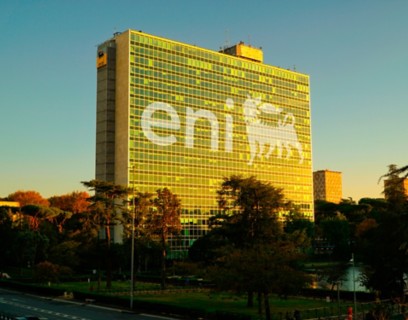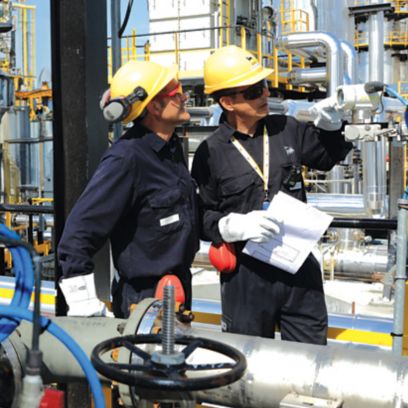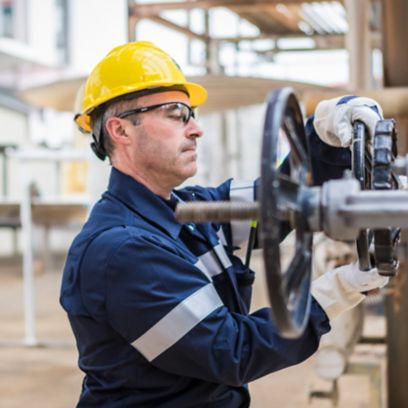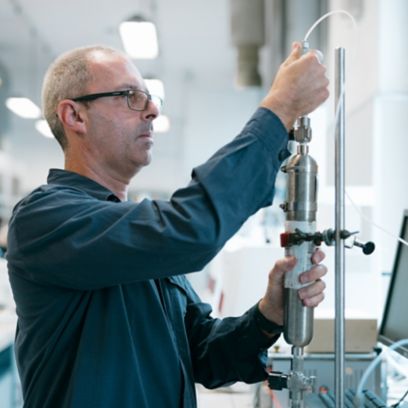
MyEni Login

What is SAF
SAF (Sustainable Aviation Fuel) is a biofuel produced using the HEFA technology (via the hydrogenation of esters and fatty acids) and can be blended with conventional aviation fuel in proportions of up to 50%. It is made 100% from renewable raw materials, primarily waste and residues such as used cooking oils, animal fat and by-products from vegetable oil processing.
Unlike fossil-based products, biofuels are derived from biogenic raw materials and therefore enable a reduction in GHG emissions, calculated across the entire value chain. Currently, SAFs are the only available solution to contribute to the decarbonization of air transport. Biofuels do not require modifications to aircraft or to the existing fuel distribution infrastructure at airports.
The role of SAF in the transition of air transport
To achieve the goal of more sustainable air transport, SAF producers work in synergy with airlines, engine manufacturers, airport operators and institutions.
At the European level, most European Union member states have set annual increases in biofuel blending targets. Regulation (EU) 2023/2405 stipulates that aviation fuel suppliers must ensure that the jet fuel made available to airline operators at every airport within the European Union contains a proportion of SAF.
SAF in air transport: the European Union’s roadmap to 2050
Regulation (EU) 2023/2405 establishes that the market introduction of SAF must occur in increasing quantities, following the trajectory outlined below, with an increase in the proportion every five years:
from 1 January 2025
from 2030
from 2035
from 2040
from 2045
from 2050
SAF and HVO: biofuel production at Enilive biorefineries
In Enilive biorefineries, biofuels (such as SAF and HVO diesel) are produced by subjecting raw materials to a series of physical and chemical processes. Waste, residues and vegetable oils arrive at the biorefineries via ships and tankers and are stored in tanks before undergoing two treatments: a physical one to remove impurities and a chemical one that leads to their actual conversion into biofuels.
During the first treatment, critical components are physically removed from the bio-feedstocks to ensure the efficiency of the Ecofining™ section, whose technology has been developed by Eni in collaboration with Honeywell UOP. Specifically, solid residues and gums (phospholipids) are eliminated through washing and centrifugation in the degumming section, while metals are removed via an adsorption system using bleaching earths in the bleaching section.
The oil obtained, free from metals, gums, and solid residues, then undergoes the second treatment, the chemical process, Ecofining™, which consists of two stages: hydrodeoxygenation, which removes oxygen and residual impurities, including nitrogen, and isomerisation, which converts n-paraffins into isoparaffins with suitable cold-flow properties.
The feedstock used in biorefineries mainly consists of triglycerides and fatty acids, which, through these two stages, are converted into hydrocarbons (isoparaffins), giving the final product properties very similar to fossil-based diesel. Hydrogenation ensures the complete removal of oxygen, whose presence in biogenic products would otherwise promote the formation of bacterial colonies and gums. HVO (Hydrotreated Vegetable Oil) diesel is therefore free from these issues, and it can be used in pure form in diesel engines.
Starting from the end of 2024, by implementing appropriate plant modifications, particularly to the isomerization unit, the tank farm and the logistics facilities, the Gela biorefinery has been integrating SAF production alongside HVO diesel, bio-naphtha, and bio-LPG. In 2026, the production of sustainable aviation fuels will also be extended to the Venice Porto Marghera biorefinery, thanks to a targeted investment plan.
The Enilive plant in Gela
In January 2025, Enilive announced the start-up of the first plant dedicated to the production of SAF (Sustainable Aviation Fuel) at its biorefinery in Gela, Sicily. This SAF is 100% biogenic and can be blended with conventional jet fuel in concentrations of up to 50%. The Gela plant has a capacity of 400,000 tonnes per year, accounting for nearly one-third of the expected SAF demand in Europe in 2025 (according to Wood Mackenzie data) following the entry into force of ReFuelEU Aviation.
Since September 2022, Enilive has signed agreements with several airlines for the supply of SAF, thanks to initial production carried out in synergy between the Enilive Gela biorefinery and other Eni facilities using waste-based feedstocks. Enilive plans to increase its SAF production optionality to 1 million tonnes per year by 2026, with the potential to double by 2030, supported by ongoing projects at the Venice biorefinery and the development of new biorefineries in Malaysia and South Korea.
Enilive data on biorefining
Our production targets for sustainable fuels
(million tons per year) total biorefining capacity by 2030
SAF production optionality by 2026 (potentially doubling by 2030)
(million tons per year) total biorefining capacity by 2030
SAF production optionality by 2026 (potentially doubling by 2030)
Eni.com is a digitally designed platform that offers an immediate overview of Eni's activities. It addresses everyone, recounting in a transparent and accessible way the values, commitment and perspectives of a global technology company for the energy transition.
Discover our mission























